[Opinion] The show will go on, but at what cost?
Picture by: Will Brent Inzana
When I first saw the call for the fall musical auditions, I immediately thought, “How does Grandview go from Hairspray to 1776?”
On the surface level, 1776 is a musical quarrel of twenty-five rich white men whose ideology and lives were romanticized to be ordinary and relatable.
“That particular musical was never on my radar to do. Ever. … it’s twenty-five white guys and two white girls and that’s not who we have here,” said theatre director Brianna Lindahl.
“That’s not representative of our student body at Grandview.”
When Lindahl discussed with current seniors last year, she received feedback that this year’s musical should be another show like Hairspray, that had roles for women and people of color.
But after attending a production of 1776 at The International Thespian Conference a few years back, the spirit of ‘76 and Hamilton made up Lindahl’s mind.
“I realized the only way I could ever do 1776 was by gender and race bending it, so it looked like the students today at Grandview highschool,” said Lindahl.
But here’s the controversy: should 1776 look like teenagers today?
A Cross to Bear
1776, like Hamilton, dives beyond politics and explores the minds of the politicians. The story is based on the events leading up to the signing of the Declaration of Independence. The show explores the characters’ families, relationships and humanizes every single character in 1776.
“The Founding Fathers that fought for our country were human and we’re not perfect,” said Lindahl.
And from imperfection, our Founding Fathers fought hard to build a country from slavery, exploitation, and oppression of anyone who was not a rich white man.
“Initially I did not want to do it,” said Chipo Muchineripi, who plays Edward Rutledge, the most controversial character in the show due to his favorable and brazen views of slavery.
“It was heart wrenching, agonizing, and it brought upon emotions I did not know I had or harbored. The date itself does not evoke anything good. I’m a black person. In 1776, what was I? What was my position in life?” said Muchineripi.
Controversy: Should a black woman portray a role that was a specific race, status, and gender? A role that held and still holds a position of oppression. A white role in history.
“There’s nothing that justifies this role. It’s a bad person and for me, the only way I cope is by the grace of God. It’s an out-of-body experience. I’m dead inside until one time I get to portray it as myself. It’s pulling my skin and skills as an actress,” said Muchineripi.
“Sometimes you have to play things that you are not at all.”
Controversy: who is theatre for?
Muchineripi bore the biggest cross of Lindahl’s bold artistic approach to Hamilton-Cast the show.
“I’m going to do this for everybody. For the vision rather than for my own self,” said Muchineripi.
“For me, all it brings upon is agony and pain. For the sake of changing people. For the sake of changing people and their lives through my life. I think it’s worth it.”
The Vision
In a country still living the effects of slavery, segregation, and systematic racism, 1776 festers an already open wound. Unlike Hairspray, 1776 is bleak. Many rehearsals throughout were cut short and the show found itself almost canceled due to the cast, crew, and pit’s emotional hardships.
However, many students along with Lindahl tried to remain optimistic about the vision and the impact of the show on our community and the future of performing arts.
“We hope to empower the upcoming female generation by casting numerous females in roles as the Founding Fathers. We want our actors to know that women can succeed in powerful political positions today. We want our suburban community to see students of color in these roles. We want them to see these extremely talented young adults of color performing in leading roles on the Grandview stage. We want our community to open their arms and embrace diversity so they can experience the amazing human beings we have the privilege of teaching every day. We want our incredible high school students to feel empowerment through portraying historical figures that are marveled,” said Lindahl.
Controversy: was 1776 the right show to enact Lindahl’s vision?
I wonder if it is really empowering as a woman or person of color to be able to play a leading role but only when you are cast as a white role or a man’s role.
How empowering is it really for a young female audience to watch one of the only real female roles in the show makeout onstage for a minute?
Another criticism I have is that it glorifies the Founding Fathers. For example, the show depicted Thomas Jefferson as a mute young romantic, who played the violin and loved his wife. Despite the fact that Thomas Jefferson was a horrific villain who owned over six-hundred African-American slaves and raped his female slaves.
But go ahead, 1776, let’s sing and dance about how much he loves his wife.
That being said whether doing 1776 was worth the controversy, long drawn out jabber of how hot the room was in Philadelphia, Benjamin Franklin’s inappropriate innuendos, or blatant American propaganda and nationalism, we cannot forget our history, we cannot censor out slavery, and we cannot forget the compromises our country stood on.
During the process, the cast was able to sit down and discuss issues of race, history, and even their own views of the show.
“They [the discussions] were eye-opening. You have this perspective as a minority that you have to protect yourself, especially here, but then you have people like Lindahl that want to tell a deeper story with color and politics,” said Kyla Carey who is an ensemble member.
“It opens your mind of bigger more collective problems from our history and how it affects us in politics and how that picture might look the same today with just a few drops of color and women here and there.”
Initially, Carey also did not want to do the show, but she later found the show to be beyond the surface level of race and controversy.
“People were proud to play those characters because they would have that person rolling in their grave knowing that not only a black person, but a black woman is playing a man’s role in Congress,” she said.
Performing 1776, two hundred years later with a whole different cast shows how much we have progressed in America, yet it also shows how little we have changed.
“It’s contradictory, but we want people to feel anger. We want people to feel sadness. We want people to feel those emotions so that they can take something from this play and question why is this happening and why did this happen? And why we can’t let this happen again,” said Carey.
“It should rile you up.”
Lindahl believes that this show is also vital for the performing arts community.
“It’s our mission to let the students that are not white suburban kids know that there is a place for them here in the performing arts. There is a place for them on stage in leading roles,” she said.
“There’s no place for racism in the arts.”
However, my hope is that Lindahl can take this blind casting method and continue to do it. I hope that this will not be a one-time thing and that she can also look to shows that are written to be empowering.
Lindahl took a tough artistic risk when doing this show. She didn’t do Disney. She didn’t do a rerun of a popular light musical. She didn’t use a majorly white cast. She’s creating discussion both good and bad. And isn’t that what art is supposed to do?
“It’s not pretty. It’s not hidden. Everything is out. It’s raw. It’s in your face.”


![[Opinion] The show will go on, but at what cost?](https://ghschronicle.com/wp-content/uploads/2019/11/DSC_0134-1024x683.jpg)
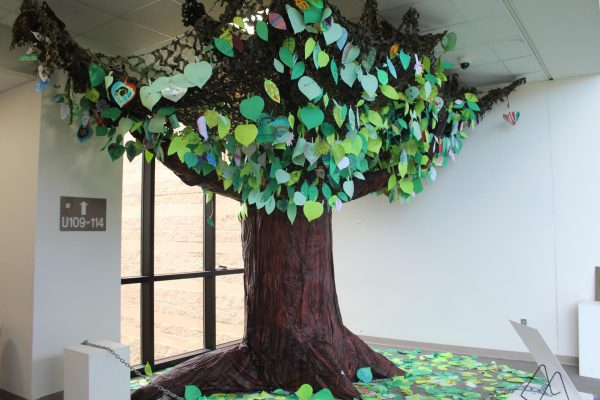
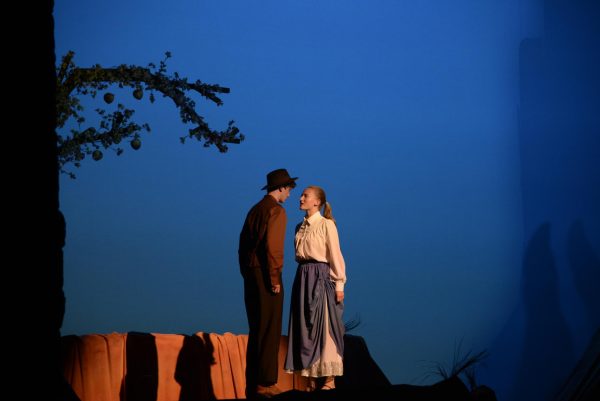

![Dream Week Diaries: GHS Pep Assembly for Matthew [PHOTO GALLERY]](https://ghschronicle.com/wp-content/uploads/2025/03/VAN_8543-600x400.jpg)
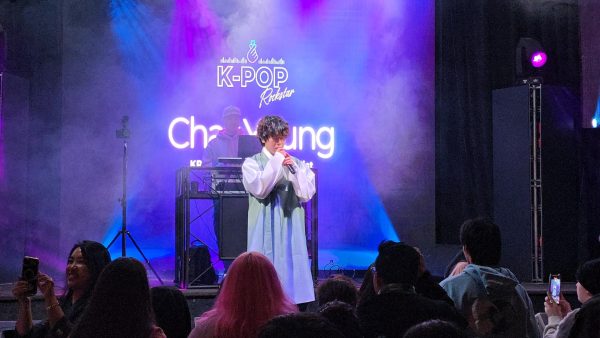
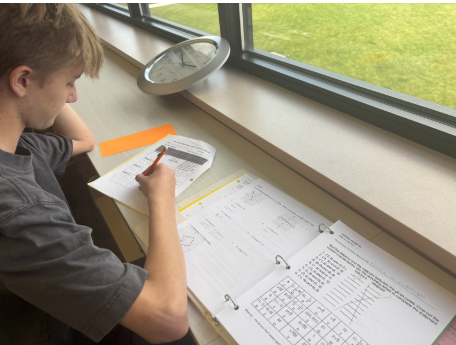
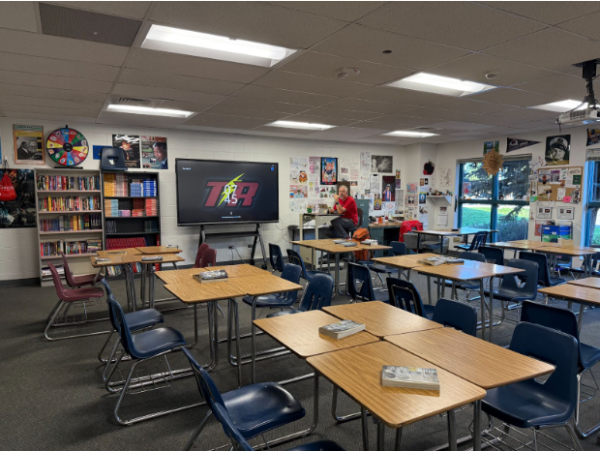
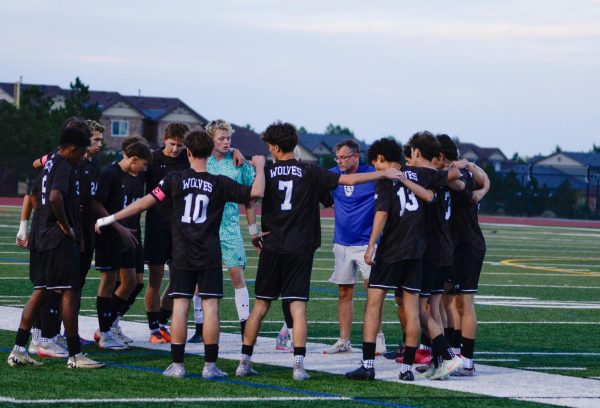
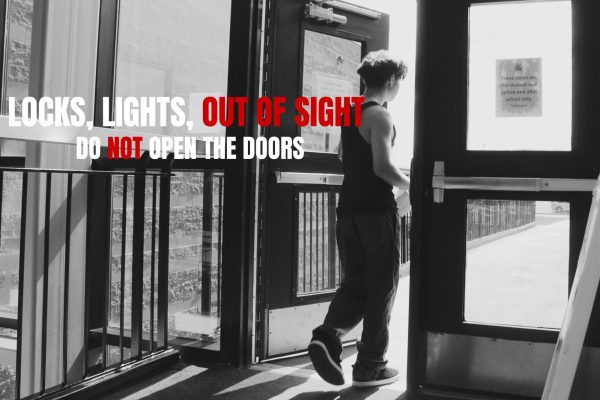
![A Vest Won’t Protect You [OPINION]](https://ghschronicle.com/wp-content/uploads/2025/09/KoltonZuckerVestPosterOffWhite-450x600.png)
